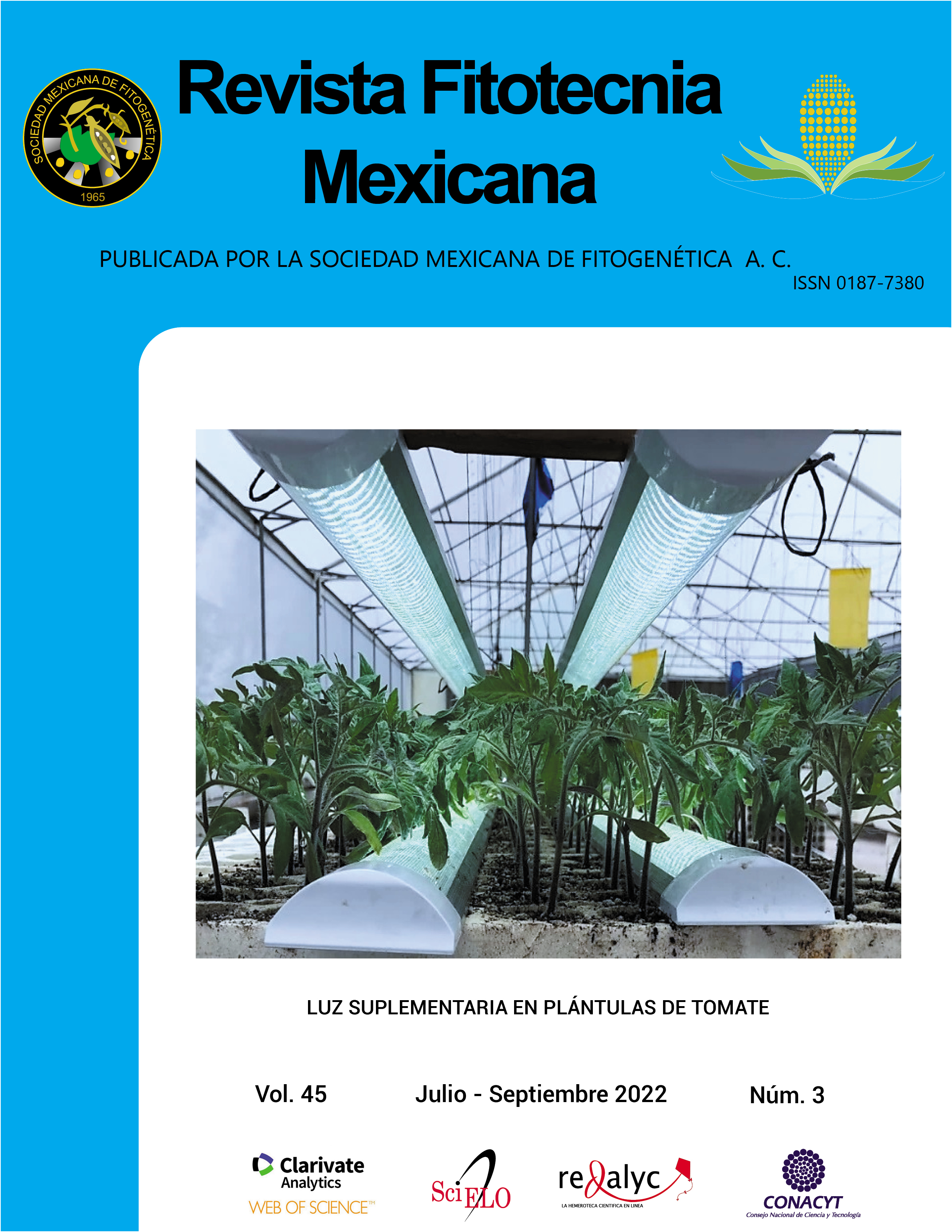Ex vitro GROWTH OF Lycaste aromatica (GRAHAM) LINDL. SEEDLINGS
Main Article Content
Abstract
In plant micropropagation, acclimatization is a crucial step to promote morphological and physiological changes in plants for their ex vitro adaption. The objective of this study was to evaluate the survival and development of Lycaste aromatica (Graham) Lindl. seedlings obtained from two micropropagation systems (semi-solid medium and liquid medium in a gravity immersion bioreactor, BIG). The seedlings were established in different substrates (peat moss Premier® or Chilean Sphagnum moss) and received different fungicides (PHC T-22®, Captan Plus® and Ridomil Bravo® 81, and plants that did not receive application), in a completely randomized experimental design with 2 × 2 × 4 factorial arrangement, resulting in 16 treatments. During 28 weeks of acclimatization, the plants were in transparent plastic trays with the corresponding substrates, in a greenhouse with temperature in the range from 20 to 37 °C, irradiance of 85 μmol m-2 s-1 and 70 % relative humidity. Results showed that plants had significant differences in survival and number of shoots due to the micropropagation system in which they were obtained, while the substrates influenced survival and total chlorophyll in leaves. Plants obtained in semi-solid medium and established in Chilean Sphagnum moss substrate survived in proportions from 88 to 100 %. The plants obtained in the BIG system were the tallest with 7.2 cm. The plants obtained in semi-solid medium and established in peat moss Premier® formed 1.25 shoots. On the other hand, the plants obtained in semi-solid medium, established in peat moss Premier® with fungicide Captan Plus® applied, had more total chlorophyll (0.43 mg g-1 of fresh leaf weight). Fungicides did not induce differences on plant survival.

